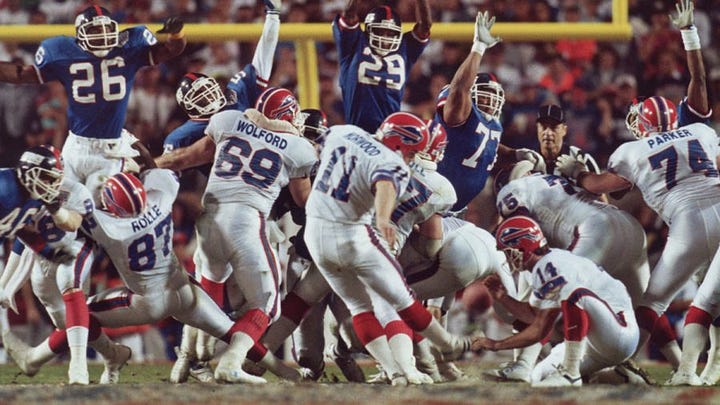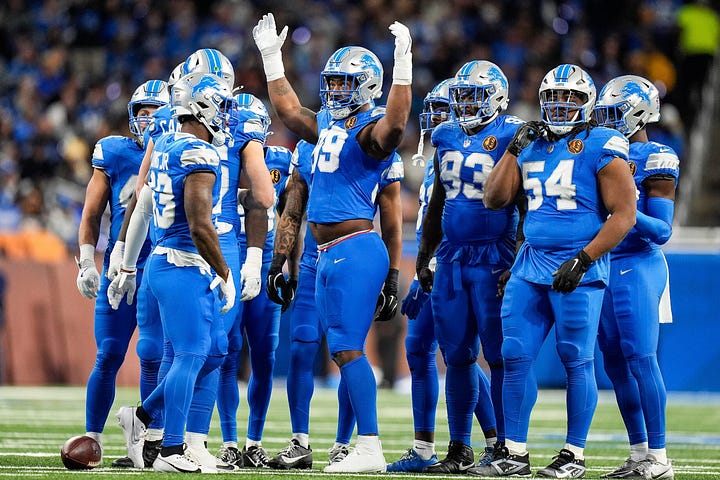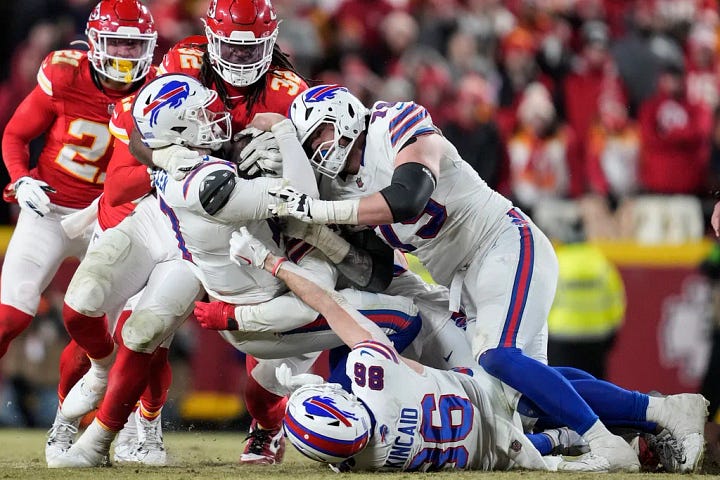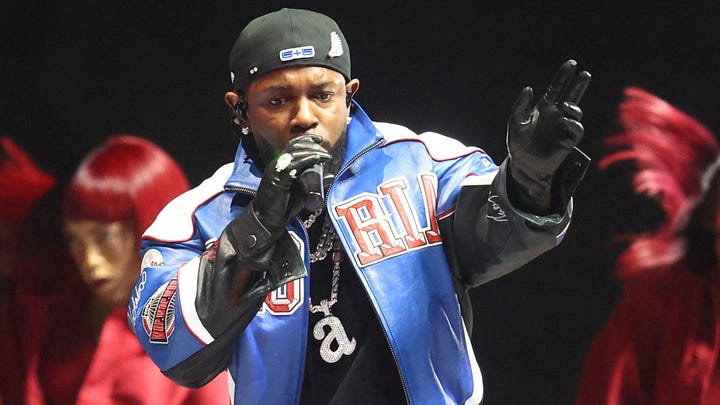Losers: A Guide to Failure
Politics, sports, and music has me thinking about winners and losers, and what the latter learn from their failures.
I’ve been thinking about failure a lot lately. Perhaps the reason is that I am now 50 years old, around the age when the more self-aware among the aged begin to pine through memories of spent decades, of which you’ve run out of fingers to count on one hand. And those decades invariably include a number of failures and regrets: times you feel like a loser. What do we learn from these times?
Landslide Loss
Other events have got me thinking on losers as well. Jimmy Carter died at 100 years of age in the final days of 2024. This peach state presidential centenarian was born before the invention of the circuit breaker, solid rubber, diving suits and the first television images yet somehow he mostly remembered for being a certified election loser who somehow seemed to make a bigger difference in the world after leaving office than serving in it. The numbers are stark: even though was the incumbent president Carter lost to Reagan in an electoral college landslide (489 to 49)* This got me thinking about losers in politics, along with recalling the ill-fated campaign of Walter Mondale (who only secured his own state among 50 in a loss), as well as the defeat of Kamala Harris in late 2024.




No Pity Bowl
Recently my wife and I also watched the documentary The Four Falls of Buffalo about the four Super Bowls (in a row!) that the Buffalo Bills went to and lost (in a row!) That got me thinking about losers in sports, an experience the Indiana teams I follow have instructed me in more years than not. I had all this in mind as the Bills ended yet another year tragically losing to their rivals the Kansas City Chiefs, and even though I was rooting to see what I termed the “Pity Bowl” of the Bills vs. the Detroit Lions, it was not to be as both teams sadly lost in the playoffs. As I was looking into losing teams I learned that the Philadelphia Phillies baseball team are the biggest losers in US sports history, with 11,326 losses.** To put those losses into perspective, The Phillies have lost two times more games as the number of human beings who have played in the NBA during its entire history.***




The Beef
This past year also showed us what losing looks like in music, as a more indirect cold war escalated into what some claim became the biggest recording war in rap history between Drake and Kendrick Lamar.**** Now, I understand many if not most of my astute readers, due to music tastes or general disconnection from the esoteric arcana of rap game, may not have a clue what was going on in the halftime show so I won’t go into all the details of this episode into this hip hop rope-a-dope between the Toronto, Ontario and Compton, California artists (respectively). Doing so would take an encyclopedic knowledge of black history, pop culture, diss tracks, TikTok slang, the Bible, and Urban Dictionary.*****
However, I should emphasize here the context. In the Spring of 2024 these two artists separately recorded a full catalog of contempt-crammed canticles about each other (these rap songs are oft called “diss tracks”). They released a prolific output of nine songs in just six weeks. And this beef wasn’t microwaved, it was slow-brewed from 2013 to 2024, as the pair had recorded 31 songs that involved some claims to superiority over the other or insults of one another. You might think that petty, but petty is kind of the point in a rap beef.




While it didn’t start this year, I believe it certainly ended this year, culminating in a few months when fans learned Drake was suing Universal Music Group for defamation and harassment because of one of Lamar’s diss tracks. The suit claimed the song was “designed to assassinate Drake’s character." The irony is that phrase might be the actual definition of what a diss track is in the first place. But the battle wasn’t over as Lamar won five Grammys for his portfolio of put-downs shortly thereafter, and then proceeded to run up the score in his Super Bowl halftime show, referencing his rival multiple times, singing the forbidden song in medley form, resulting in much of the crowd (and many young people watching at home) singing along with the crescendo on the most infamous dig at Drake, all while the target’s ex-girlfriend, tennis star Serena Williams, danced for the camera.
Historic Success and Failure
This all led me to tweet out this observation: “In this Super Bowl the Chiefs are getting owned by the Eagles like Kendrick owned Drake.” Oh right, speaking of running up the score, there was in fact a football game going on before and after all this rap beef business. In the context of this article I might say that in this Super Bowl the Eagles looked like Ronald Reagan and the Chiefs like Jimmy Carter. Patrick Mahomes is likely one of the top three quarterbacks in the history of football after Brady and Manning. I never thought I see him play so horribly and offer up what may be the worst first three-quarter performance of an quarterback in NFL history (by the fourth quarter the game was well over, if not before.)
MEANWHILE, all this meandering has me reflecting on what to do about failure. When you lose, what do you do? When you hear information that suggests you’re failing, how should you react?
Well, there’s the advisable way, which I’ll arrive up on in a moment, and then there’s four things most of us do instead: Ignore, Deny, Blame, and Double Down:
Ignoring
When we take this approach we adopt comedian Steven Wright’s philosophy: “If at first you don't succeed, destroy all evidence that you tried.” In order to battle this temptation to just move on, I’ve been working on my own personal “Failure Resume” which lists all the ways I’ve failed through my life. It ends up looking kind of like an inverted LinkedIn profile that promotes everything I ever screwed up. It gives me a place to start on what I failed at, and what I learned from each thing.
Denying
Orwell said, “To see what is in front of our nose is a constant struggle.” And when we fail it is so tempting to not see that which is right in front of us. We do all kinds of tricks to explain away failure and say it’s not really failure. We want to act like winners even when we’re losers. The best among us don’t deny failure, they face the brutal facts, knowing the first step is just to admit one has failed.
Blaming
One of the ways to explain away our failures is to not take any ownership ourselves. It’s always someone else’s fault. One of the ways you can tell people quit counseling too early is that they think counseling is “just about blaming your mother for your problems.” Well, yeah, figuring out how your relationship with your parents influence your decisions, behavior, and emotions is often the first step—but it’s not the final step. The same is true for failure: you have to move beyond the blaming stage to figure out why you failed, and how to improve.
Doubling-Down
Other times we just decide that while failure may have happened we just need to keep trying. We knock our heads against the wall over and over again, trying to miraculously turn it into a door. Remember the definition of insanity.*****
Instead of these four responses to failure, we can choose do to the three thigns that actually help us improve after losing: Discern, Adjust, and Resolve
Discern
This involves asking why you lost. Discern why things went they way they did in order to cause the failure. Fitzgerald said, “Never confuse a single defeat with a final defeat.” This is just one loss—but it was a failure. What contributed to this single loss? That can help you ensure it’s not your last one.
Adjust
This involves asking how you can change. Adjust how you approach the problem and take action to do things differently in the future. Like Barrie said, “We are all failures—at least the best of us are.” Failure becomes the incubator for the future success.
Resolve
Finally, this involves asking who you want to be in the future. The failure becomes just another part of who you are. The loss is not forgotten, it’s integrated. It’s not a story of one success after another, instead, Churchill reminds us, “Success is stumbling from failure to failure with no loss of enthusiasm.”
So, what failures are you recovering from? What have you learned from losing a few times here and there? And how are you turning failure into success?




Count me in the I-have-no -clue what was said or sung or rapped in the halftime show camp. Zero. LOL.
This is well stated so thank you. Reminded me of the Newton PDA, that almost bankrupted APPLE but led to the iPod and iPhone.
It’s never a loss if one adapts and learns.
Well said Dave...thanks for the exegesis of KL's show too! I was lost.